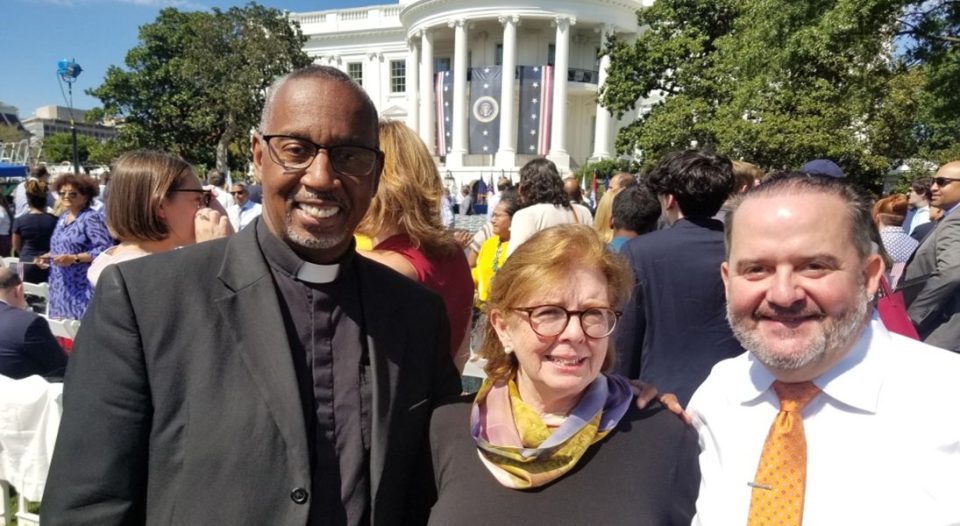My email inbox isn’t usually an exciting read. But you don’t miss an email from the White House social secretary.
Over the past 18 months, ELCA staff, along with faith-based advocates and other partners, have invested many hours pursuing policies in Congress that would address health care, poverty, climate change, immigration and a host of other issues as they interface with ELCA advocacy priorities. Policy results aren’t assured. Advocating with this church or any faith group in the halls of power in Washington, D.C., is hard work, and legislative wins are rare.
The email I received, however, invited me to the White House to celebrate passage of the Inflation Reduction Act of 2022. That law invests billions of tax dollars in climate change prevention, expands access to health care and is designed to reduce some of the deficits of recent decades. Over time, provisions of the policy should improve the quality of life for many of us at home and abroad, especially the most vulnerable.
At a reception on Tuesday, Sept. 13, I witnessed the scope and depth of the advocacy community here in our nation’s capital. Walking the grounds of the South Lawn were Lutherans, Episcopalians, Presbyterians, Methodists, Jews, Muslims and others who shared value-centered input in the federal policy process. Some of us were seeing each other in person for the first time in many months. The ELCA is in companionship with more than 70 other faith groups in Washington, D.C., whose advocacy ministries advocate for, and sometimes against, policies that impact gospel and interreligious values. As Jesus seemed to know when he sent his followers out into the world two by two, we cannot do this work alone.
For me, advocacy is a vocation and a call.
Also on the South Lawn were our counterparts in government, including staff I’ve met with for months virtually. These relationships are critical to moving forward public policies that serve our common good. People in these positions are public servants who may be following what Martin Luther named as their “calling.”
In advocacy work, we may not always be able to celebrate wins. Yet advocacy is a way to respond to Jesus’ request to “feed my sheep” (John 21:15-17). In all the ways that we can, in our own time, we find ways to serve others, and sometimes we make progress in the public square. For me, advocacy is a vocation and a call. To represent the ELCA at the White House was a great honor.
Advocacy is also an extension of my faith in Jesus and, following his example, my knowing the nature of God by working for justice and for those on the social and political margins.
So much work remains, but the voices and advocacy of Lutherans and of so many other people of faith make a difference. Through ELCA federal advocacy efforts and in your locality, work with others, build relationships and find guidance on issues. The return on investment for our advocacy will be felt for decades to come. Stay committed. It works!





